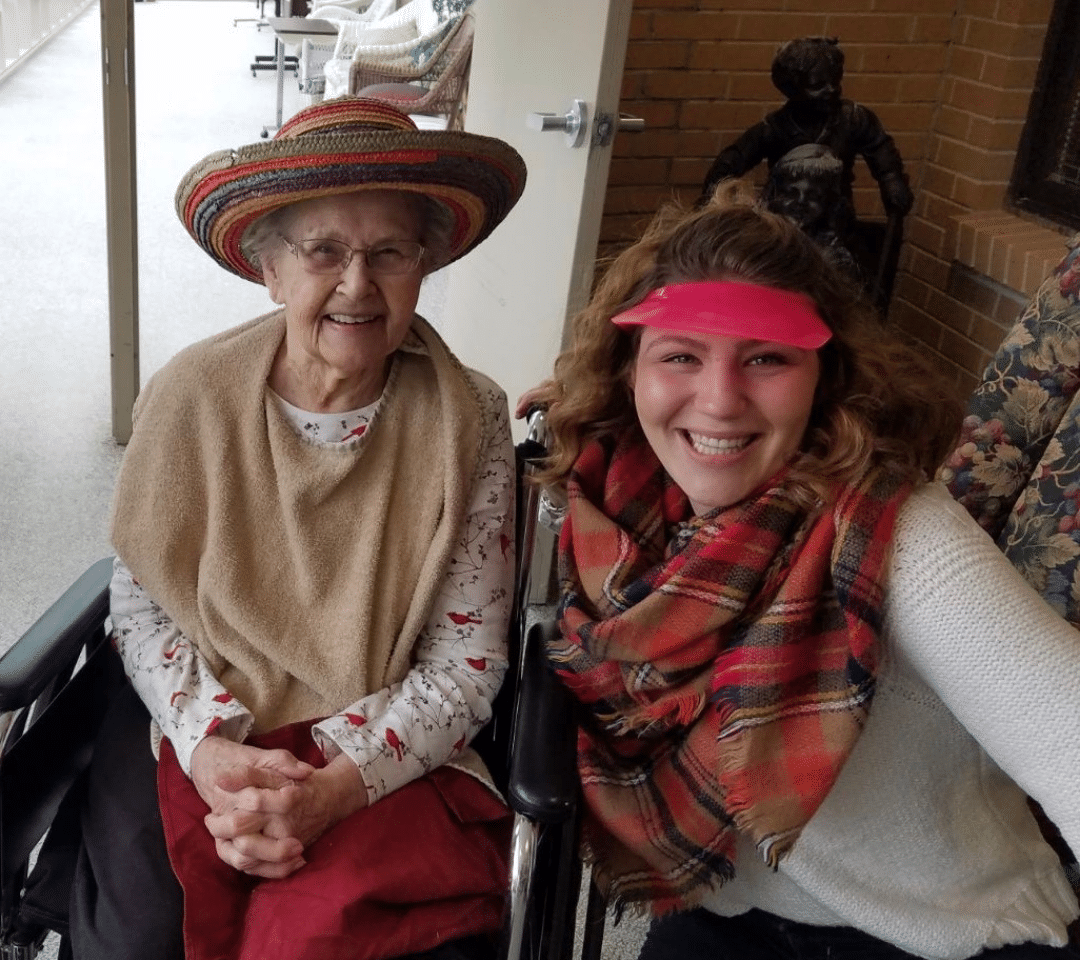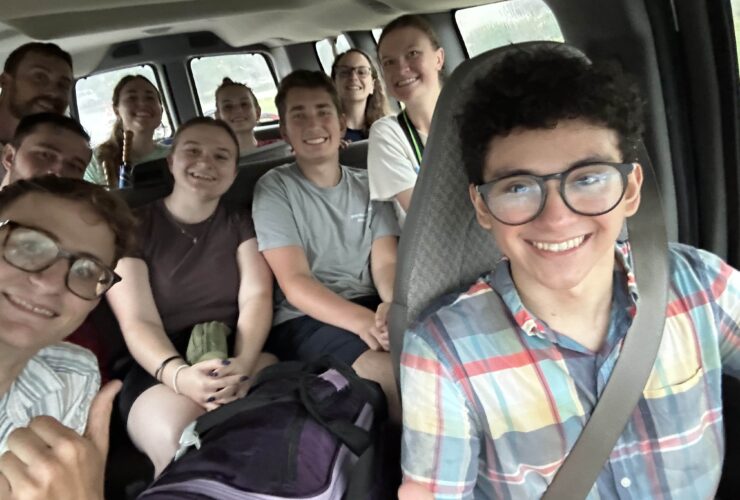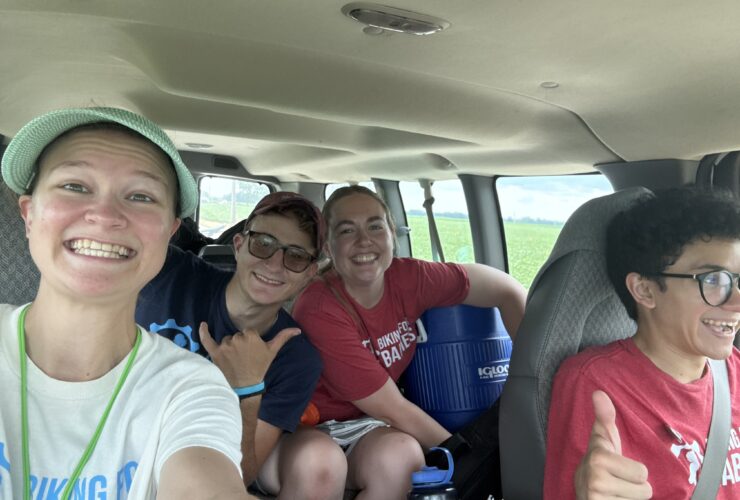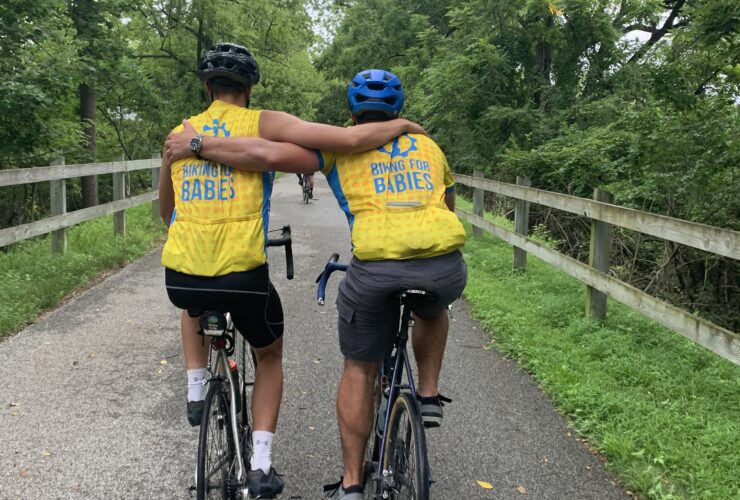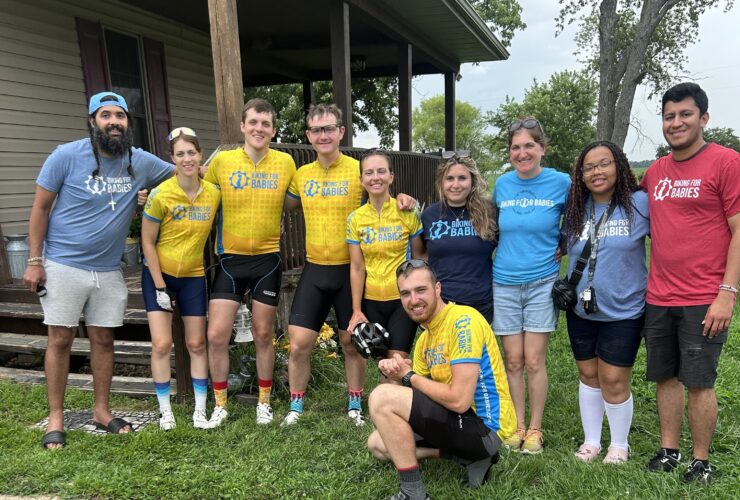by Aubrie Faust , 2021 missionary (rider on Southern Route) and Director of PRC Relations
Three years ago my grandma passed away. I was very present during the last few weeks of her life as she moved from the nursing home to hospice and her health slowly declined. There was one day in particular that my dad and I were visiting her in the nursing home. It was an extremely rough day- probably her worst before she died. She was mostly unresponsive and had just fallen earlier in the day trying to get out of her wheelchair on her own. I honestly had never seen someone in more agony. My dad and I were sitting there with her praying and singing to her. I will never forget when she looked at us in the eyes and said, “This isn’t so bad.”
I carried this in my heart the next few weeks before she died. How could someone in so much pain, faced with no hope of getting better, be so accepting of her own pain, suffering, and weakness? I know everyone says their grandma is a wonderful and special person, but mine really was. She was the holiest person I had ever met. Why did she deserve such suffering and a painful death? How could she faithfully and joyfully accept the suffering that the Lord was asking of her?
The world tells us to avoid suffering at all costs.
“Buy this new *insert fancy gadget here* because it will make you happy and make your life better.”
“Don’t stick your neck out for someone else, only worry about taking care of yourself. Helping others may put you behind in the long run.”
“Distract yourself with *x,y & z* so you don’t pay attention to the things that are hurting you in your life.”
“Suffering is useless.”
As I was reflecting on my third national ride which took place almost two months ago, this story of my grandma’s death and thoughts on suffering came back to me. The National Ride is indeed filled with suffering big and small. Setting your alarm for 3:30 am for a week straight. (I am NOT a morning person). Leaving a spouse, kids, and/or your family and friends behind. When your feet BURN from being in your cycling shoes for the last 125 miles. Friends, it is not easy.
Despite these and many other burdens, I had seen the missionaries around me choose joy in moments of suffering all week long. I was thinking about this after the Ride was over because I realized that I cannot remember a single time when I heard someone complain the whole week. And we biked 682 miles- no matter how good of a cyclist or how patient of a support crew person you are, that is not pain-free.
I myself never feel more joyful than I do during the National Ride. According to the world, this makes absolutely not one bit of sense. How could the hardest week of my life also be the best week?
Well, the world is wrong (shocker there) about suffering. Suffering can, and should be, joyful and it is not useless. Biking for Babies missionaries willingly take a cross of suffering upon themselves every year as a way to lift our nation up in prayer and up out of the culture of death. They use the power of redemptive suffering, and lovingly offer up their pain for women who need love and support. And it works.
It works wonders in the hearts of our missionaries. I have heard countless stories of radical love, joy, and hope from missionaries who have encountered the Lord in their fears and anxieties on the Ride.
It works to save lives. Hundreds of babies are born each year with the help of our pregnancy resource center partners which our missionaries pray for during the National Ride week.
It works to transform the culture as missionaries are true witnesses to joyful suffering. They are able to challenge the narrative by their very lives.
When we love the Lord and recognize that everything is gift, it can change how we view the struggles and sufferings of our lives. Suffering is turned on its head to be instead a chance to love radically. When suffering is lived in the context of a loving relationship with God, it is joyful. My grandma taught me this first, but I experienced it myself firsthand as a Biking for Babies missionary.



